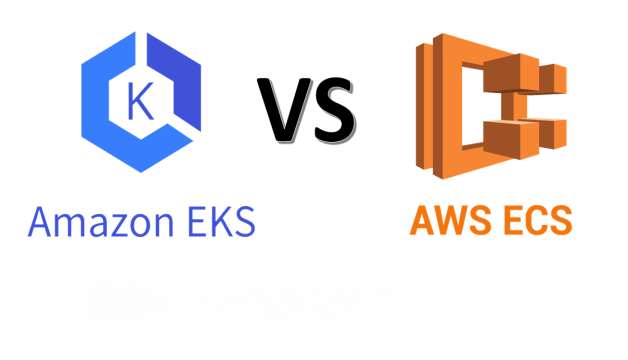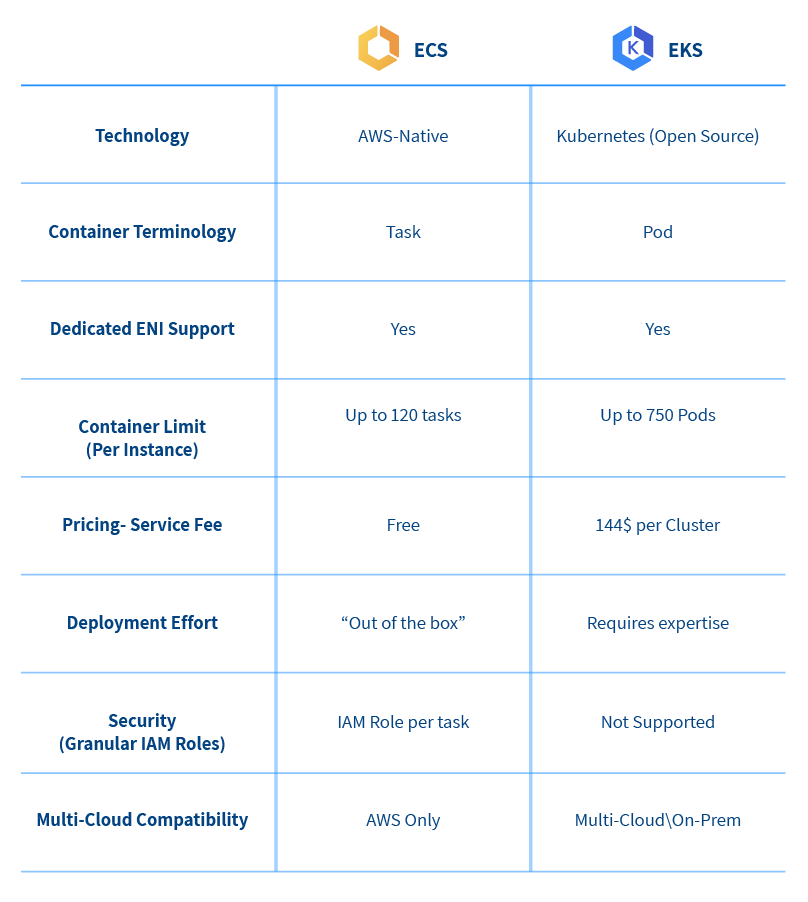Table of Contents
Introduction | Amazon ECS vs Amazon EKS
Let’s get started with Amazon ECS vs Amazon EKS. Amazon offers two types of container services – Amazon ECS and Amazon EKS. But there is frequent doubt in the minds of customers as to which container service to opt for. Let us dive into it. First, we will go through ECS and EKS definitions and then compare both to have an optimized solution to the question.

Amazon ECS:
Amazon Elastic Container Service (Amazon ECS) is a highly scalable, high-performance container service that supports Docker containers. It offers high availability and security and is deeply integrated with other AWS services. On top of it, ECS features Amazon Fargate which helps you to deploy serverless containers.
Amazon EKS:
Amazon Elastic Kubernetes Service (Amazon EKS) makes it simple to implement and manage containerized applications using Kubernetes on AWS. EKS is highly scalable too and since it is built on top of the open-source Kubernetes tool, Amazon EKS is fully compatible with applications managed by Kubernetes. Hence, it can be concluded that Amazon EKS is more versatile than Amazon ECS.
One of the key factors you can work on is Simplicity VS Flexibility.
Amazon has received tons of testimonials from its customers that use ECS and all of them have conveyed that ECS is simple to use and deploy. It decreases the number of decisions a customer must make around compute, network, and security configurations without compromising any of its features.
On the other hand, EKS is very flexible. Customers choose EKS for its vibrant ecosystem and community as also open-source APIs. It offers a secure, reliable, scalable, and resilient Kubernetes environment for customers like Godaddy and Intel.
There are a few differences in the pricing model too. With ECS, you are not additionally charged for EC2 launch types. However, for EKS, customers do need to pay an additional approximately $0.20/hour per cluster.

You can run your ECS or EKS services on the following computing options:
AWS Fargate, EC2 Instances, AWS Wavelength, AWS Local Zones, and AWS Outposts.
Customers who want to move solely to the AWS cloud should go for ECS as it offers more in-depth AWS integration as compared to EKS. On the other hand, if you are looking to run container deployments across multiple setups and need the flexibility offered by Kubernetes, go for EKS.
I would however end this article with the below conclusion:
Choosing a container service does not need to be a binary decision. There are options available in AWS where ECS and EKS work together with shared operations, integrated security, and many more tools. You can take advantage of ECS’s simplicity or roll your own using the flexibility of Kubernetes on EKS.
Amazon ECS vs Amazon EKS by AWS

Leave a Reply